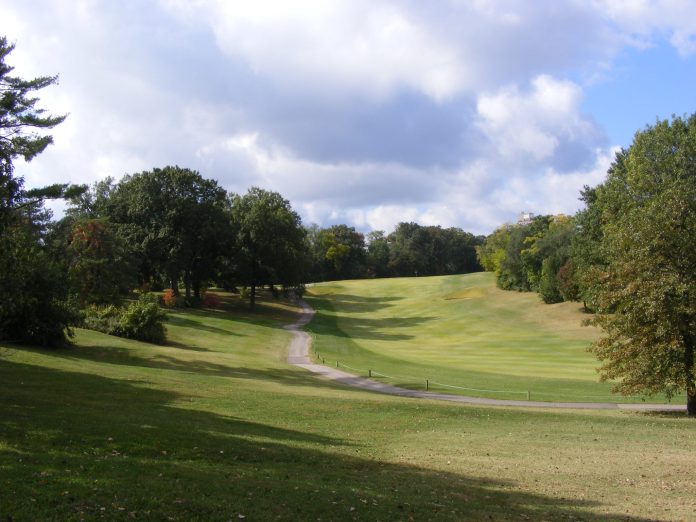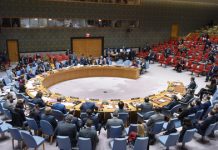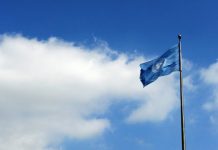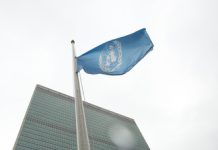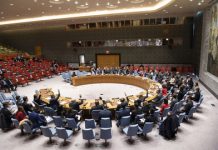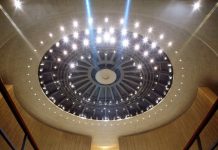Photo credit: DiasporaEngager (www.DiasporaEngager.com).
For some. the move by President Trump is ambitious and bold- and for others, it has a strong tinge of controversy concerning the absence of key power players in continent.
By Adonis Byemelwa, Pan African Visions (PAV) —
Just when Washington had grown used to ignoring Africa, President Donald Trump is setting the stage for a recalibration. From July 9 to 11, five African leaders will gather in the U.S. capital — not for pomp, not for photo ops, but for a high-stakes, stripped-down summit engineered to reassert American influence across a continent that’s increasingly become the chessboard of 21st-century geopolitics. For some the move is ambitious and bold- and for others, it has a strong tinge of controversy concerning the absence of key power players in continent .
Senegal, Guinea-Bissau, Liberia, Mauritania, and Gabon. That’s the handpicked guest list. And to many inside the Beltway — including seasoned observers like Melvin Foote — it was met with a mixture of surprise and skepticism. Why these five? What strings are being pulled, and what deals are being dangled?
The answer is emerging with startling clarity: minerals, leverage, and strategic positioning. Gone is any pretense of pan-African unity or sweeping diplomatic themes. Trump’s Africa policy is being rebooted, and the new model is unapologetically transactional. This is diplomacy reimagined through the lens of the deal — not the doctrine.
For Trump, this summit is more than a diplomatic warm-up. It’s a calculated move on a high-value board. He’s reading briefings himself, pushing aides for deliverables, and treating each of these leaders not as ceremonial guests, but as pieces in a wider strategy — one centered on economic cooperation, security alliances, and a resource race the U.S. can no longer afford to lose to China.
Behind the scenes, commercial diplomacy is the heartbeat of the event. Trump doesn’t want platitudes; he wants pipelines — not for oil, but for rare earths, lithium, gold, iron ore. The minerals needed to power America’s clean energy future are buried under African soil, and this summit is aimed at locking down those supply chains fast.
Each guest carries unique political baggage and economic opportunity. Brice Oligui Nguema of Gabon may have seized power through a coup, but he arrived in Washington bearing access to critical mineral wealth. In Trump’s ledger, that alone earns a seat at the table. Democracy, in this moment, is negotiable.
Liberia’s Joseph Boakai, on the other hand, represents something closer to the conventional playbook — a democratically elected leader trying to reboot his country’s faltering economy and win back investor confidence. For Boakai, it’s about access to capital; for Trump, it’s about access to iron ore and gold. Needs align. Interests overlap. Everyone understands the stakes.
Mauritania’s Mohamed Ould Ghazouani offers something rarer still: quiet stability in a volatile Sahel. His value to Washington isn’t tied to minerals, but to security, particularly counterterrorism and maritime operations. He’s a former general who’s kept his nation largely insulated from regional jihadism. For a White House disinterested in bureaucratic entanglements, he’s the kind of partner who speaks the right language: order, reliability, results.
And then there’s Senegal’s Diomaye Faye — a political lightning rod who went from prison to the presidency in a matter of months. Young, reformist, and riding the wave of a disillusioned electorate, Faye is reshaping West Africa’s political narrative. Trump, always attuned to power dynamics, sees the value in getting in early, forging ties with a leader poised to shape the region for years to come.
Umaro Sissoco Embaló of Guinea-Bissau adds another layer — unpredictability. His country is a known corridor for narco-trafficking, and recent U.S. intelligence suggests smuggling activity is on the rise. His inclusion signals a double agenda: yes, diplomatic cooperation, but also hard-edged law enforcement. The White House is reportedly ready to offer tools — surveillance drones, naval tech, intelligence support — in exchange for action. The message is clear: crack down, or be cracked down on.
Context matters. Just days before this summit, the Trump administration brokered a tentative peace agreement between Rwanda and the Democratic Republic of Congo — a potential game-changer in a region long mired in violence and mineral-fueled proxy wars. The timing of the summit, then, is no accident. It’s part of a broader, sharper pattern of engagement. Less feel-good, more forceful. Less about presence, more about pressure.
Yet the unease among Africa watchers is hard to ignore. Melvin Foote’s critique cuts through the page. He’s seen this movie before — the rhetoric, the outreach, the selective partnerships — and he’s not buying the transformation just yet. He raises real questions: What about the development programs that have been gutted? The visa bans that still linger? The looming expiration of AGOA, which could devastate economies across the continent? Questions like this and more linger and the hope is that the Trump Administration will be more open and forthcoming in what is been planned for Africa, says Mel Foote.
This summit may be historic in scope, but for many, it’s haunted by contradictions. Can a policy that sidelined Africa for years now pivot credibly toward partnership? Can transactional diplomacy deliver long-term gains without building trust?
Trump’s brand of foreign policy is nothing if not bold. But Africa is not a boardroom, and these are not just deals. They’re countries, histories, and lives. As the five presidents descend on Washington, one truth looms large: the stakes are real, the interests are raw, and the outcomes — whatever they may be — will shape the next phase of U.S.-Africa relations in ways no ceremonial summit ever could.
Source: Pan African Visions (PAV)
Source of original article: The Institute of the Black World 21st Century (ibw21.org).
The content of this article does not necessarily reflect the views or opinion of Global Diaspora News (www.GlobalDiasporaNews.com).
To submit your press release: (https://www.GlobalDiasporaNews.com/pr).
To advertise on Global Diaspora News: (www.GlobalDiasporaNews.com/ads).
Sign up to Global Diaspora News newsletter (https://www.GlobalDiasporaNews.com/newsletter/) to start receiving updates and opportunities directly in your email inbox for free.


